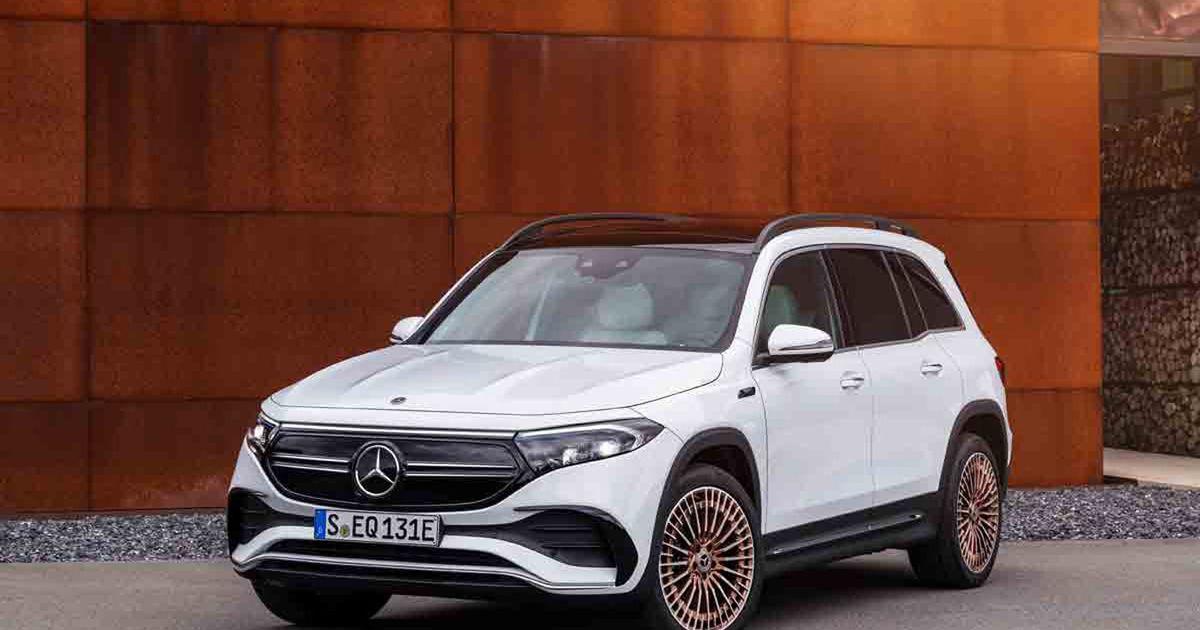
Mercedes-Benz expects electric vehicles to account for about half of its U.S. sales by 2030, executives revealed at the brand’s national dealer meeting this month.
The German luxury marque is in the early days of an EV product offensive that will bring a handful of zero-emission models over the next year.
That effort will be critical to Mercedes’ aspirations of delivering about 350,000 vehicles in the U.S. next year, according to a retailer who attended the event.
Mercedes aims to sell up to 45,000 EQ-branded electric vehicles in 2023, said the dealer, who asked not to be identified. In contrast, Mercedes sold 352,129 units in 2019, before the pandemic and a global supply chain crisis kneecapped production industry-wide.
Mercedes launched its all-electric EQ subbrand with the debut of a battery-powered S-Class sedan late last summer. This year, the automaker will unleash three EV models in the U.S., including the EQB compact crossover, EQE midsize sedan and EQS large SUV.
Next year, the portfolio gets expanded with the arrival of the EQE midsize crossover.
The EQ lineup will be the cornerstone of a marketing push. Retailers also viewed three EV-centric television commercials at the meeting.
A second dealer who attended the event said Mercedes’ U.S. marketing boss Drew Slaven told dealers that the brand’s national advertising for the next two years will focus “almost exclusively” on the electric product and technology.
Mercedes aims to take the fight to EV kingpin Tesla.
“The purpose of the campaign is to say, ‘Tesla, you had a great run, but now you have to earn it,'” the dealer said.
A Mercedes spokesman declined to comment on details shared at the meeting.
Meanwhile, Mercedes’s retail network is prepped to move more EVs. More than 300 of the brand’s 383 U.S. dealers have made the necessary investment in charging infrastructure and equipment to sell and service the next-generation vehicles, the company said at the meeting.
The EQ offensive comes as Mercedes reorients its business focus — steering more upmarket where the margins are higher.
The automaker last month said it will channel more than three-quarters of its investment to its higher-end vehicles. Mercedes sees top-end vehicle sales increasing 60 percent by 2026, a jump that would help push its operating margin to around 14 percent by mid-decade.
The automaker will focus on its high-performance AMG and its tony Maybach brands, and it is targeting an even more rarified segment with a new program of ultra-exclusive collector cars called the “MYTHOS Series.”
“We want to strengthen the feel and look around these brands through our marketing, through the presence in our showrooms,” Mercedes-Benz USA CEO Dimitris Psillakis told Automotive News ahead of the dealer meeting. “Whether that will happen within our existing dealerships, or [as a standalone], it is part of the strategy being discussed and developed.”
Psillakis reassured dealers at the meeting that Mercedes has no intention of selling direct to consumers or moving to an agency model in the U.S.
Under the agency model — so named because the automaker acts as the sales agent — the manufacturers owns the stock, invoices the customer directly and finances branding. Dealerships deliver the car to the customer, earn a commission on each vehicle, and generate money from service.
Psillakis also ruled out a network consolidation in the U.S., even as Mercedes looks to trim its dealership footprint by about 10 percent globally.
“In the U.S., we are not over-dealered,” Psillakis told Automotive News. “We are well structured in terms of the size of the network and locations [of the stores]. So we don’t have any white spots at the moment.”
But Psillakis said he does expect store ownership to change amid the robust M&A activity going on in the retail business.
“This year might see more, either because dealers do not want to take the leap to this higher level, or they don’t want to invest in EV infrastructure in the future,” he said. “And that might lead to one or the other stepping out of the network, or we might see also in some cities’ voluntary consolidation of operations.”
Psillakis sees large dealer groups buying out smaller independent stores to achieve greater economies of scale by consolidating back-office functions, such as marketing, accounting, and vehicle storage across multiple dealerships.
He said such consolidation reduces the dealer’s costs and makes them more competitive.